How to Rebuild Trust in Relationships Post-Recovery

Understanding the Complexity of Trust Restoration
Rebuilding trust in relationships post-recovery is a multifaceted process, often fraught with emotional complexities and challenges. When an individual emerges from the shadow of addiction, the path to recovery does not end with sobriety. Instead, it extends into the realm of mending broken bonds and repairing the trust that addiction has shattered. This journey necessitates a commitment to personal growth, open communication, and mutual understanding.
The Essential Role of Sobriety in Rebuilding Trust
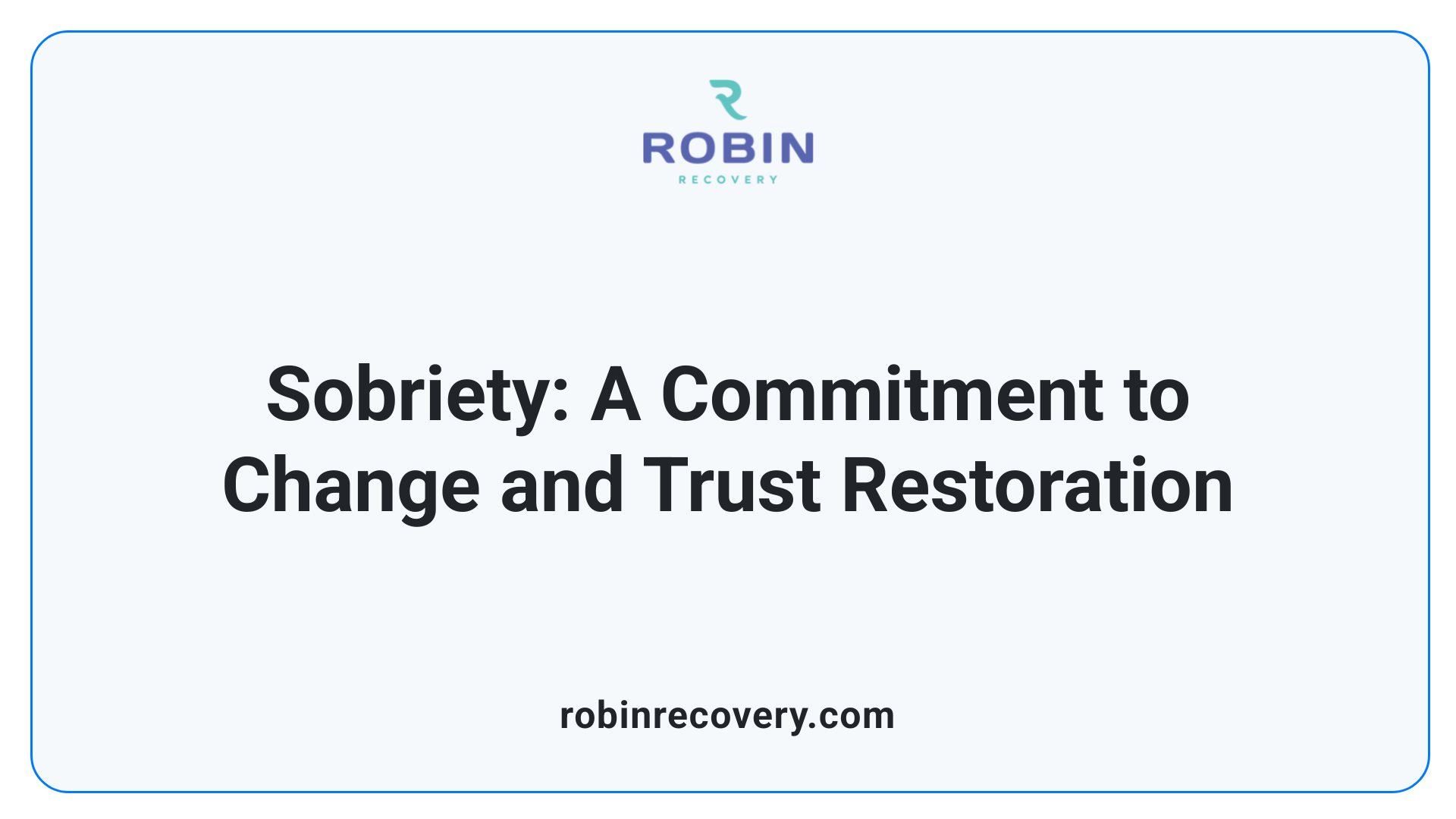
Importance of Maintaining Sobriety
Maintaining sobriety is vital for rebuilding trust in relationships strained by addiction. Sobriety shows a commitment to change and a genuine effort to avoid relapse. It serves as the foundation for rebuilding relationships, as it demonstrates personal accountability and reliability. Actions taken during recovery, such as attending therapy and engaging in support groups, further reinforce this commitment. By consistently maintaining sobriety, individuals take proactive steps towards fostering a sense of dependability among loved ones. This consistency is crucial, as it assures others that past behaviors won’t repeat.
Self-Care Actions Important for Trust Building
In addition to sobriety, effective self-care actions play a significant role in restoring trust. Activities like regular therapy, practicing mindfulness, and establishing a healthy daily routine contribute to emotional well-being. Through self-reflection, individuals regain confidence in themselves, which is essential for rebuilding trust. Communicating openly about one's recovery journey also helps to establish trust; this transparent approach reassures loved ones and facilitates emotional connection.
A clear action plan, which may include steps for accountability, can further enhance one’s reputation as a reliable person. Ultimately, prioritizing self-care not only supports personal growth but is also key in fostering relationships that are built on honesty and integrity.
How Does Sobriety Change Relationships?
Sobriety can significantly transform relationships by fostering healthier dynamics and promoting self-awareness. Individuals in recovery often learn to identify and break unhealthy patterns, allowing them to choose more supportive partners. However, starting new relationships too soon can be risky, as romantic entanglements are common relapse triggers. During the early stages of recovery, focusing on self-discovery and emotional skills is crucial for readiness. It is essential to address any underlying issues related to addiction to avoid repeating toxic relationship patterns and to set healthy boundaries when dating.
Open and Honest Communication: A Cornerstone of Trust
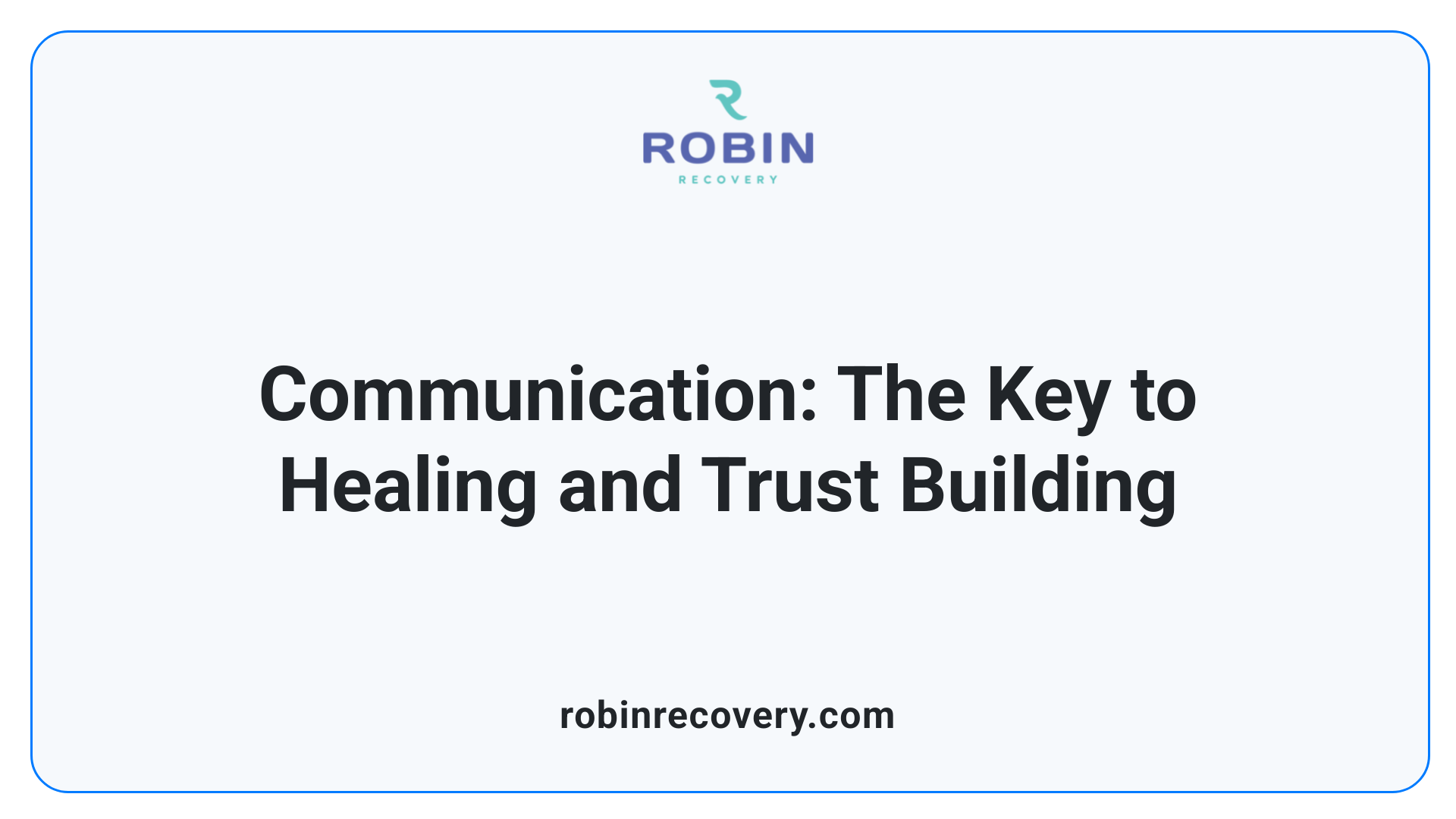
Role of Communication in Trust Rebuilding
Communication plays a pivotal role in rebuilding trust after substance abuse. Open dialogue allows individuals to express their feelings and concerns transparently, which is essential for healing. Honesty about past actions and ongoing struggles fosters a deeper connection, as both parties engage in honest conversations about their experiences. Being clear about emotional reactions and expectations can alleviate anxiety and misunderstandings, creating a foundation where trust can begin to thrive once again.
Creating a Safe Space for Dialogue
To facilitate effective communication, it's vital to create a safe environment where both partners feel valued and respected. This includes using "I" statements rather than accusatory language, which helps prevent defensiveness and promotes constructive dialogue. Setting aside regular time to talk about feelings, issues, and recovery progress can also reinforce the partnership. Through active listening and empathy, individuals can forge a stronger bond and better understand each other's emotions, paving the way for renewed trust and healthier relationships.
Can you rebuild trust in a relationship after substance abuse?
Yes, trust can be rebuilt in a relationship after substance abuse, but it requires time, effort, and commitment from both partners. The process typically involves taking responsibility for past actions, empathizing with the partner's feelings, and envisioning a healthier future together. Open communication is essential, as it fosters an environment of honesty and vulnerability where both partners can express their emotions. Additionally, sincere apologies and a commitment to change are crucial for healing the relationship. Ultimately, rebuilding trust is a gradual process that demands patience, understanding, and a willingness to work through the underlying issues together.
Steps Towards Mending Relationships and Gaining Trust
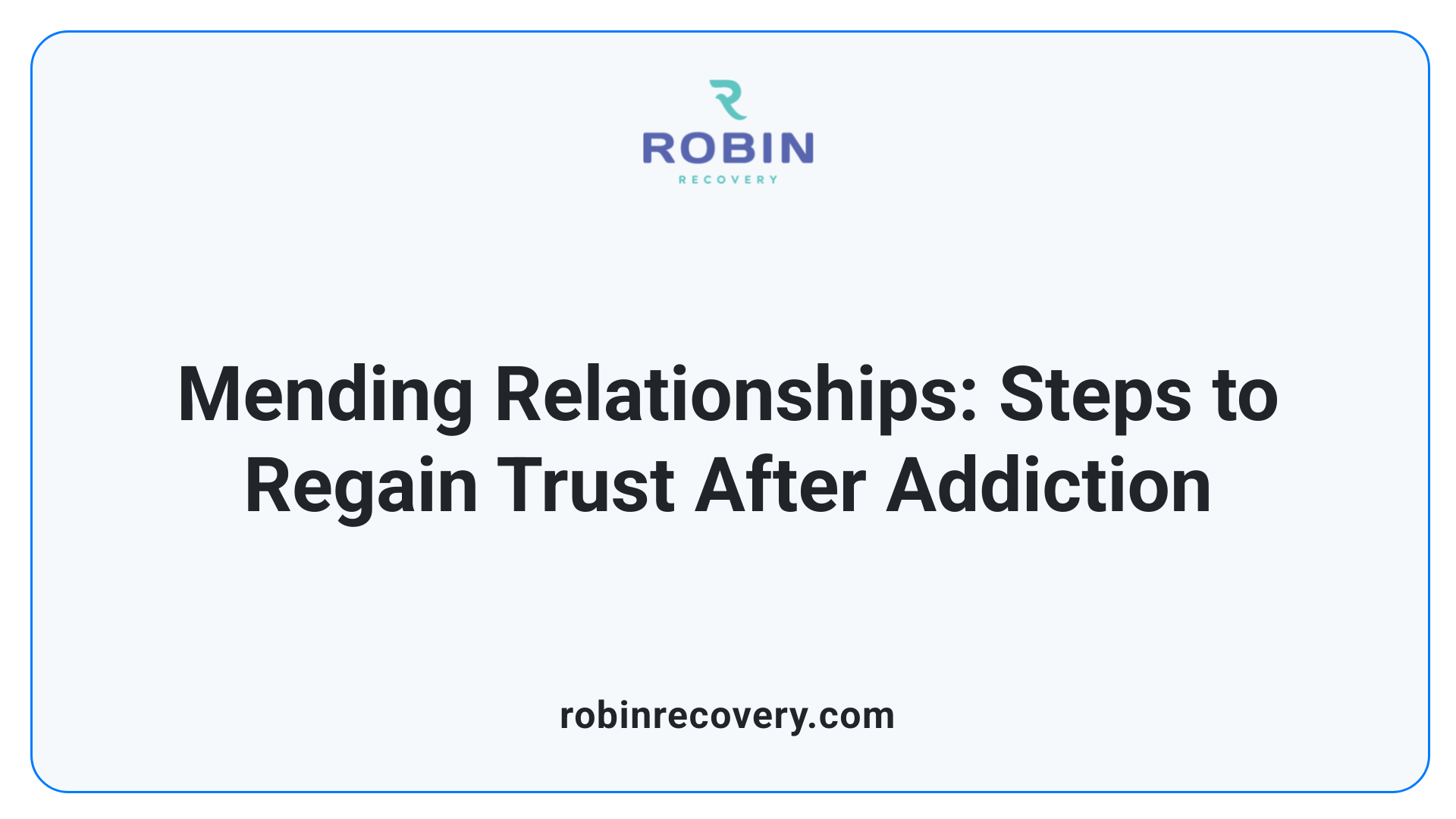
How can you regain someone's trust in a relationship after addiction?
Regaining trust after addiction often starts with a heartfelt acknowledgment of past actions. This means taking full responsibility for your behavior and recognizing the pain your actions have caused. It’s essential to listen carefully to your loved one’s feelings and perspectives, showing empathy throughout the conversation. By doing so, you validate their experiences, making it clear that you understand the impact of your previous choices.
Taking responsibility and making amends
Making amends is a crucial step in this process. It transcends just a verbal apology; it may involve tangible actions to rectify past wrongs. For instance, this can include returning stolen items or offering to compensate for any emotional or financial harm caused. This commitment needs to be seen consistently over time, as trust is rebuilt through reliable actions rather than words alone.
The process of asking for forgiveness and demonstrating change
Asking for forgiveness requires humility and a sincere desire to change. You must accept that trust may take time to restore, as your loved ones process their emotions. Demonstrating that you are serious about your recovery, such as attending therapy and following through with recovery commitments, is vital. Creating new, healthy routines will showcase your growth and help reassure them of your dedication to change. Ultimately, the journey to regaining trust involves patience, consistency, and unwavering commitment to personal growth.
The Importance of Patience and Consistency
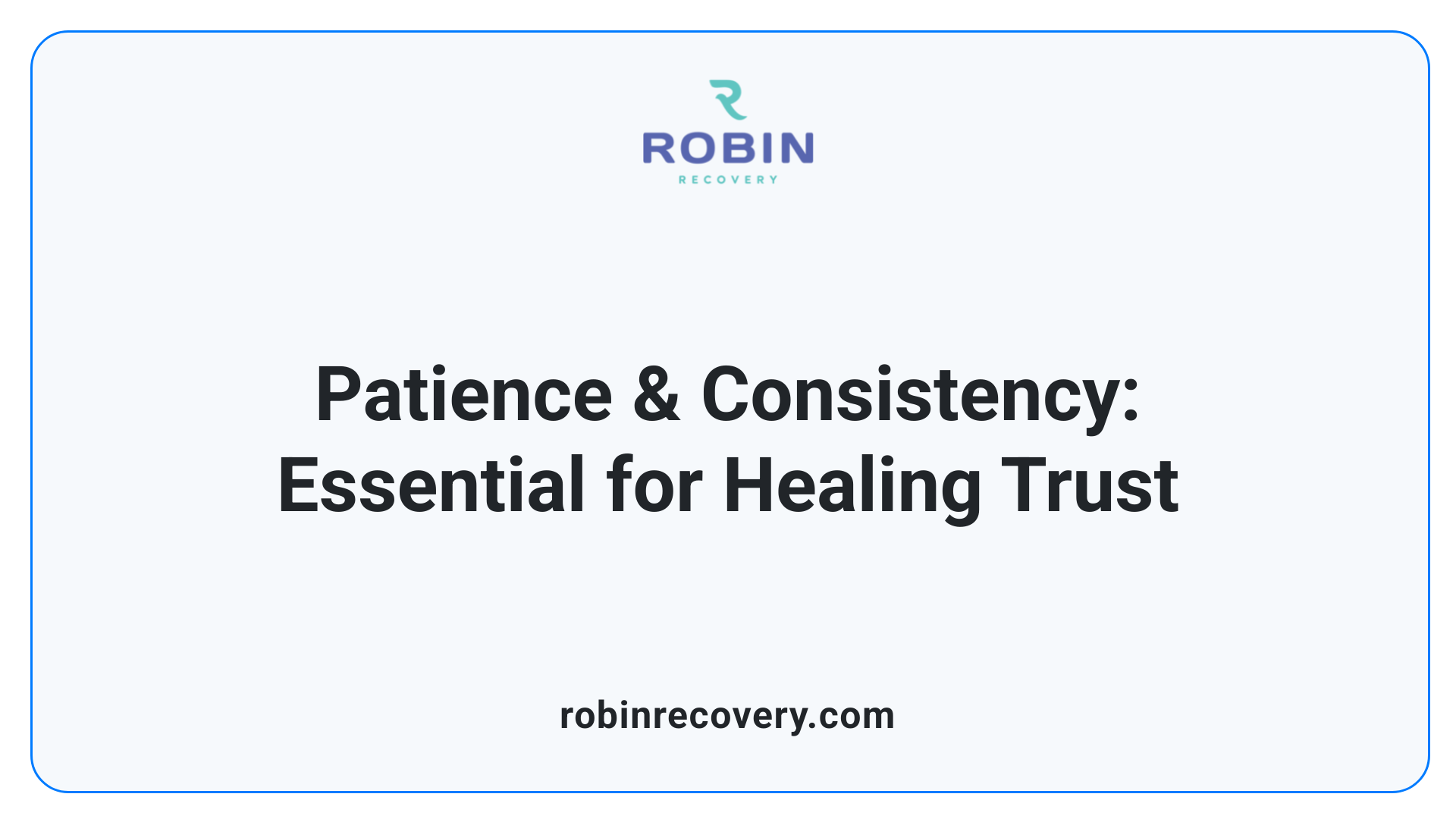
Role of Patience in Healing
Rebuilding trust during recovery from addiction is not an overnight process. Patience plays a pivotal role in healing—even for oneself and loved ones. It's essential to recognize that emotional scars caused by substance use take time to mend. Listening actively and validating the feelings of family members helps foster an empathic environment, making it easier for everyone involved to process their emotions and start healing together.
Consistency as Evidence of Change
Demonstrating consistent behavior is vital in conveying commitment to change. Actions speak louder than words, and regularly fulfilling promises reassures loved ones of your dedication to sobriety and recovery. This includes attending therapy sessions, participating in recovery groups, and maintaining honest communication about your journey. Through consistent effort, trust can gradually be restored as family members witness a reliable and dependable version of yourself.
Practical Steps for Rebuilding Family Relationships During Recovery
- Participate in Family Therapy: Engaging in therapy together can help improve communication and address underlying issues in a controlled environment.
- Sincere Apology: Acknowledge past wrongs with genuine remorse, which is critical for rebuilding trust.
- Consistent Communication: Regularly share thoughts and recovery challenges, fostering connection and understanding among family members.
- Practice Patience: Understand that the rebuilding process takes time, and emotional healing is gradual for everyone involved.
- Accountability: Reconnect with supportive individuals and remain accountable for your actions, creating a positive environment for rebuilding trust.
Personal Growth and Responsibility in Trust Restoration
Growth through self-reliance
Rebuilding trust after addiction begins with developing self-trust. This requires individuals to reconnect with their core values and learn to depend on their judgment. Making and keeping promises to oneself boosts self-confidence, creating a foundation for regaining trust from others. As individuals recognize and celebrate their personal growth, they not only foster self-worth but also demonstrate their commitment to positive change.
Taking on responsibilities as part of rebuilding trust
Being accountable is a crucial step in restoring trust. This includes staying sober and fulfilling commitments both in daily responsibilities and in relationships. Simple yet consistent actions, such as attending therapy sessions or participating in support groups, showcase reliability. Furthermore, taking responsibility for past behaviors through sincere apologies and making amends indicates a genuine effort to repair relationships.
In addition, actively engaging in community service can assist in demonstrating a commitment to change while fostering goodwill. Ultimately, embracing these responsibilities and focusing on self-improvement enhances credibility and helps solidify the trust restoration process.
Support Systems: Aiding the Trust Rebuilding Process
Role of Therapy and Support Groups
Therapy and support groups play a crucial role in rebuilding trust after addiction. Engaging in both individual and group therapy fosters a supportive environment where individuals can openly discuss their struggles, feelings, and progress.
- Family Therapy: This can improve communication skills among family members, providing a structured space for addressing emotional challenges.
- Support Groups: Attend regular meetings, such as Alcoholics Anonymous, where shared experiences can encourage honesty and accountability.
Community Involvement and Peer Support
Involvement in community service or volunteer efforts can significantly aid in trust restoration. By contributing positively to the community, individuals can demonstrate their commitment to recovery and accountability.
- Volunteer Work: Engaging in community work creates opportunities to give back, which can foster goodwill and rebuild trust with peers.
- Peer Relationships: Forming connections with others in recovery can provide shared accountability, encouraging consistent and reliable behavior.
Support Type Benefits Example Activities Therapy Fosters open communication, accountability Family sessions, individual therapy sessions Support Groups Shared experiences enhance understanding Attending local recovery meetings Community Involvement Reinforces commitment to change Volunteering at local shelters Peer Support Provides mutual accountability and motivation Joining recovery buddy systems
These support systems collectively contribute to an individual's journey of rebuilding trust, emphasizing honesty, communication, and involvement in the recovery process.
Navigating Emotional Complexities in Rebuilding Trust
Understanding Emotional Hurt from Addiction
Emotional turmoil often arises from the effects of addiction on relationships. Loved ones may feel betrayed due to past actions like lying or stealing, leading to deep-seated feelings of hurt and mistrust. Acknowledging this pain is crucial for rebuilding trust. Conversations surrounding these emotions facilitate healing, allowing open dialogue that addresses past grievances and fosters understanding.
Empathy and Emotional Support
Engaging with empathy is essential during the recovery process. Recognizing and validating the feelings of those impacted by addiction demonstrates a commitment to change. Support systems can play a pivotal role, providing emotional backing while both parties work through their feelings together. Utilizing techniques such as active listening creates a secure environment—one where feelings can be shared without fear of reprisal. This openness is vital as it lays a strong foundation for rebuilding trust.
Boundaries: Protecting both Parties in the Healing Process
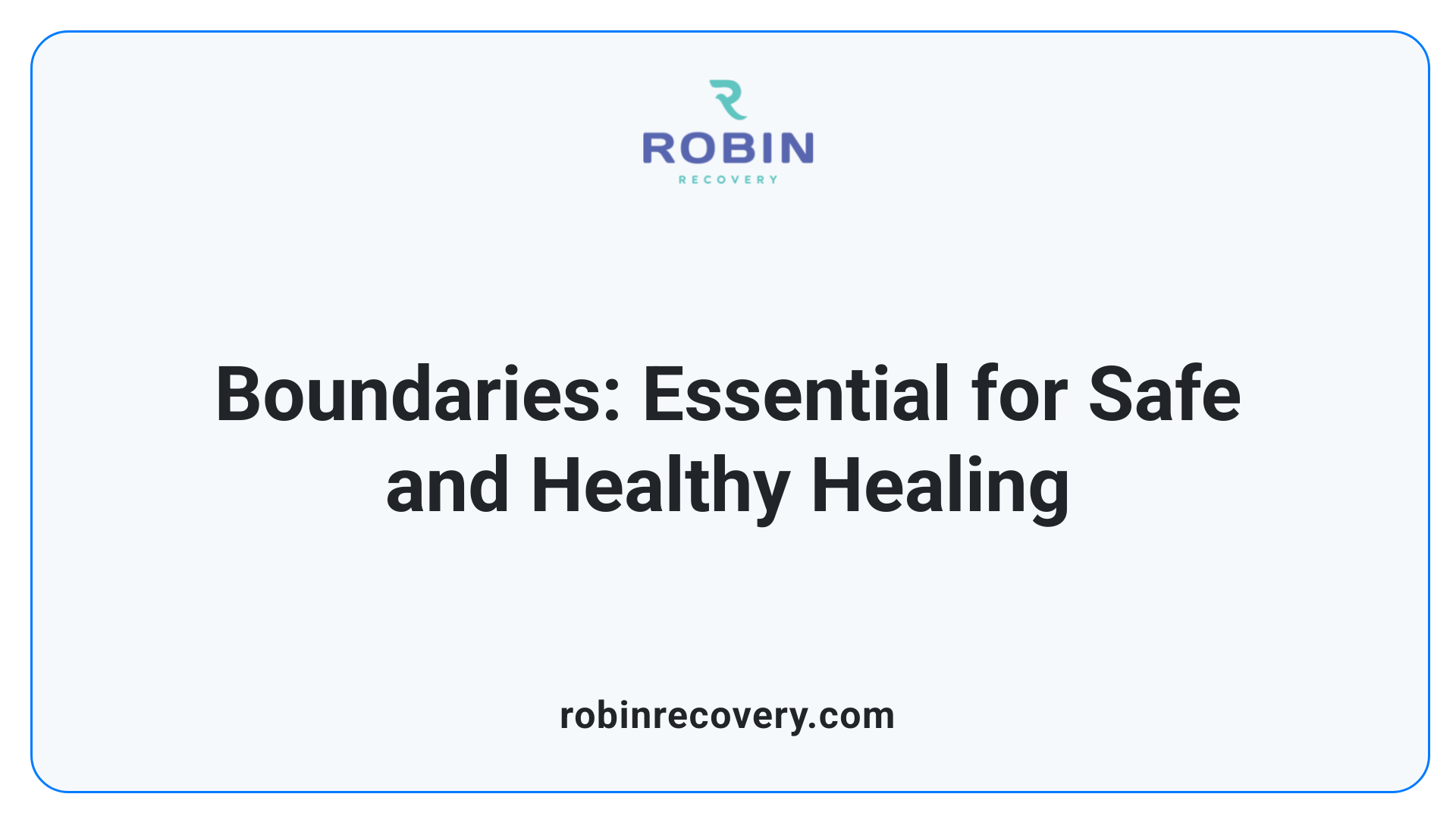
Setting and Respecting Boundaries
Setting and respecting boundaries is fundamental in the healing process after addiction. These boundaries create a safe framework where both parties can express their needs and feelings without fear of judgment. They ensure that individuals do not feel overwhelmed by the pressure to rebuild trust too quickly.
By discussing what each person is comfortable with, partners can avoid situations that may trigger old patterns of behavior or encourage enabling. It is critical for both individuals to have clear expectations, which can reduce misunderstandings and promote healthier interactions.
Preventing Codependency and Enabling Behaviors
Understanding boundaries also helps in preventing codependency, a common issue in relationships impacted by addiction. Codependency can lead to one partner enabling the other's substance use by taking on excessive responsibilities or making excuses for their behavior.
By establishing boundaries, both individuals can maintain their independence, ensuring that the recovery process does not turn into a cycle of reliance on one partner’s actions. This fosters a relationship dynamic where each person respects the other's journey while supporting each other's growth.
Can a relationship survive after rehab?
Yes, a relationship can survive after rehab, but it requires effort and commitment from both partners. Addiction is often considered a "family disease," affecting not only the individual but also their loved ones, leading to challenges like codependency, loss of intimacy, and financial strain. Effective communication becomes essential in rebuilding trust as both partners navigate the recovery process, addressing issues like shame and low self-esteem. Professional guidance from relationship counselors can help couples work through these complexities and improve their emotional connection. With dedication, recovery can lead to personal growth and healthier relationship dynamics.
Commitment and Effort: The Heart of Trust Rebuilding
Rebuilding trust post-recovery is not a task to be taken lightly; it requires sincere commitment from all parties involved. As recovering individuals work on establishing their new identities free from addiction, they must also acknowledge the pain caused and actively participate in healing their relationships. By maintaining open communication, understanding emotional needs, and making consistent efforts towards change, trust can be rebuilt, leading to healthier dynamics and fulfilling relationships. As daunting as the journey may seem, the rewards of regained trust and stronger bonds make the path worthwhile.
References
- 9 Key Strategies For Rebuilding Trust In Addiction Recovery
- How to Rebuild Trust with Friends and Family During Recovery
- How Do I Regain My Loved Ones' Trust After Rehab?
- Healing Broken Relationships: Rebuilding Trust After Substance Use
- How to Rebuild Relationships in Recovery | Addiction Treatment
- Rebuilding Trust After Addiction Recovery
- Trusting an Addict: Rebuilding Relationships After Addiction
- Building Trust and Repairing Relationships in Addiction Recovery
- Repairing Relationships After Substance Use Disorder - Psych Central
